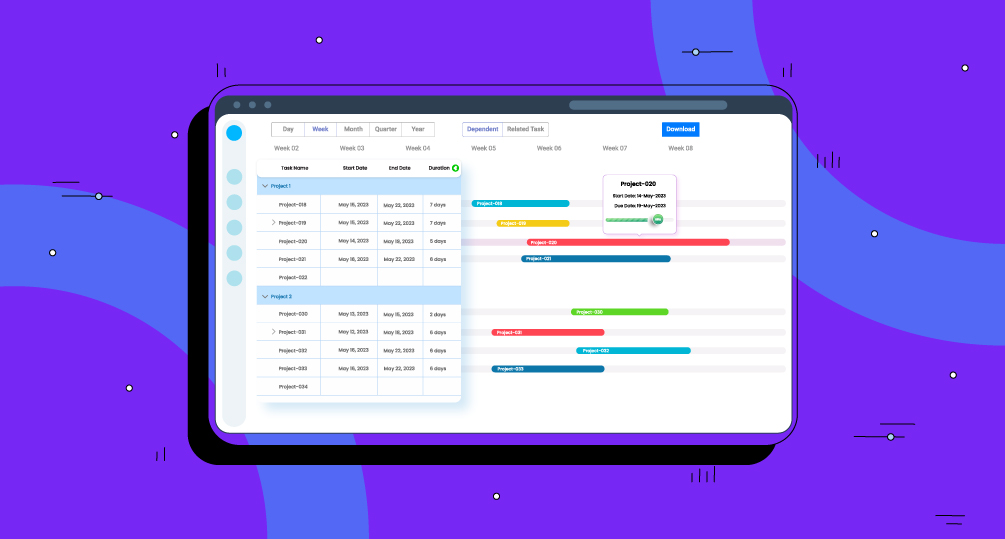Table of Contents
Project efficiency is crucial for the success of any project, big or small. It ensures that resources are used optimally, deadlines are met, and the project is delivered within budget. However, achieving project efficiency is not always easy. It requires careful planning, effective resource management, and continuous monitoring.
In this blog post, we will discuss the 10 key factors that can help improve project efficiency.
10 Key Project Efficiency Factors
- Effective Project Planning: Proper planning is the foundation of project efficiency. It involves defining project goals, creating a timeline, and identifying resources needed for the project. A well-thought-out plan helps in setting realistic expectations and avoids any last-minute surprises.
- Clear Project Objectives: Clear and achievable project objectives are essential for maintaining project efficiency. They help in keeping the team focused and ensure that everyone is working towards a common goal.
- Project Management Tool: Utilizing a project management tool can significantly improve project efficiency. These tools help in organizing tasks, tracking progress, and communicating with team members. They also provide valuable insights into project performance.
- Resource Management: Efficient allocation of resources is key to project success. It involves assigning the right people to the right tasks, ensuring that they have the necessary skills and tools to complete the job.
- Task Management: Proper task management ensures that tasks are completed on time and within budget. It involves breaking down the project into smaller, manageable tasks and assigning them to team members based on their skills and availability.
- Project Dependencies: Identifying and managing project dependencies is crucial for maintaining project efficiency. Dependencies are the relationships between tasks or events that determine the project’s timeline. By understanding these dependencies, project managers can avoid delays and ensure smooth progress.
- Regular Monitoring and Reporting: Continuous monitoring of project progress is essential for identifying potential issues early on. It helps in making timely adjustments and ensures that the project stays on track. Regular reporting keeps stakeholders informed about the project’s status and helps in gaining their support.
- Effective Communication: Communication is key to project efficiency. It involves keeping all stakeholders informed about project progress, issues, and changes. Effective communication helps in avoiding misunderstandings and ensures that everyone is on the same page.
- Risk Management: Identifying and managing risks is crucial for maintaining project efficiency. It involves identifying project risks, assessing their impact, and developing strategies to mitigate them. By proactively managing risks, project managers can avoid costly delays and ensure project success.
- Continuous Improvement: Finally, project efficiency is an ongoing process. It requires continuous monitoring, evaluation, and improvement. By learning from past projects and implementing best practices, project managers can continuously improve project efficiency.
Project efficiency is essential for the success of any project. By following the 10 key factors discussed in this blog post, project managers can streamline their projects, improve productivity, and deliver better results.
How YoroProject Help to Improve Project Efficiency
Once upon a time, in a bustling office, a team of project managers was struggling to keep up with their projects. They were using outdated methods for project management, relying heavily on spreadsheets and emails to track tasks and communicate with team members. As a result, projects were often delayed, resources were mismanaged, and stakeholders were left feeling frustrated.
One day, a new project manager joined the team and introduced them to YoroProject, a modern project management tool. Intrigued, the team decided to give it a try. They were amazed at how YoroProject transformed their approach to project management and improved their project efficiency.
With YoroProject, the team could easily create detailed project plans, including timelines, milestones, and dependencies. This helped them to better visualize the project’s progress and identify potential bottlenecks before they became major issues.

The team also found that YoroProject improved their resource management. They could quickly assign tasks to team members, track their progress, and ensure that everyone was working on the right things at the right time. This helped to prevent overloading team members and ensured that tasks were completed on time.
Communication within the team also improved significantly with YoroProject. Team members could collaborate in real-time, share files and updates, and discuss project-related issues in a central location. This reduced the need for long email chains and helped to keep everyone on the same page.

One of the most valuable features of YoroProject was its ability to track project expenses and budgets. The team could easily monitor project costs, track expenses, and ensure that projects were delivered within budget.
Overall, YoroProject proved to be a game-changer for the team. It helped them to improve their project efficiency, deliver projects on time and within budget, and keep stakeholders happy. The team was thrilled with the results and wondered how they ever managed without YoroProject.




